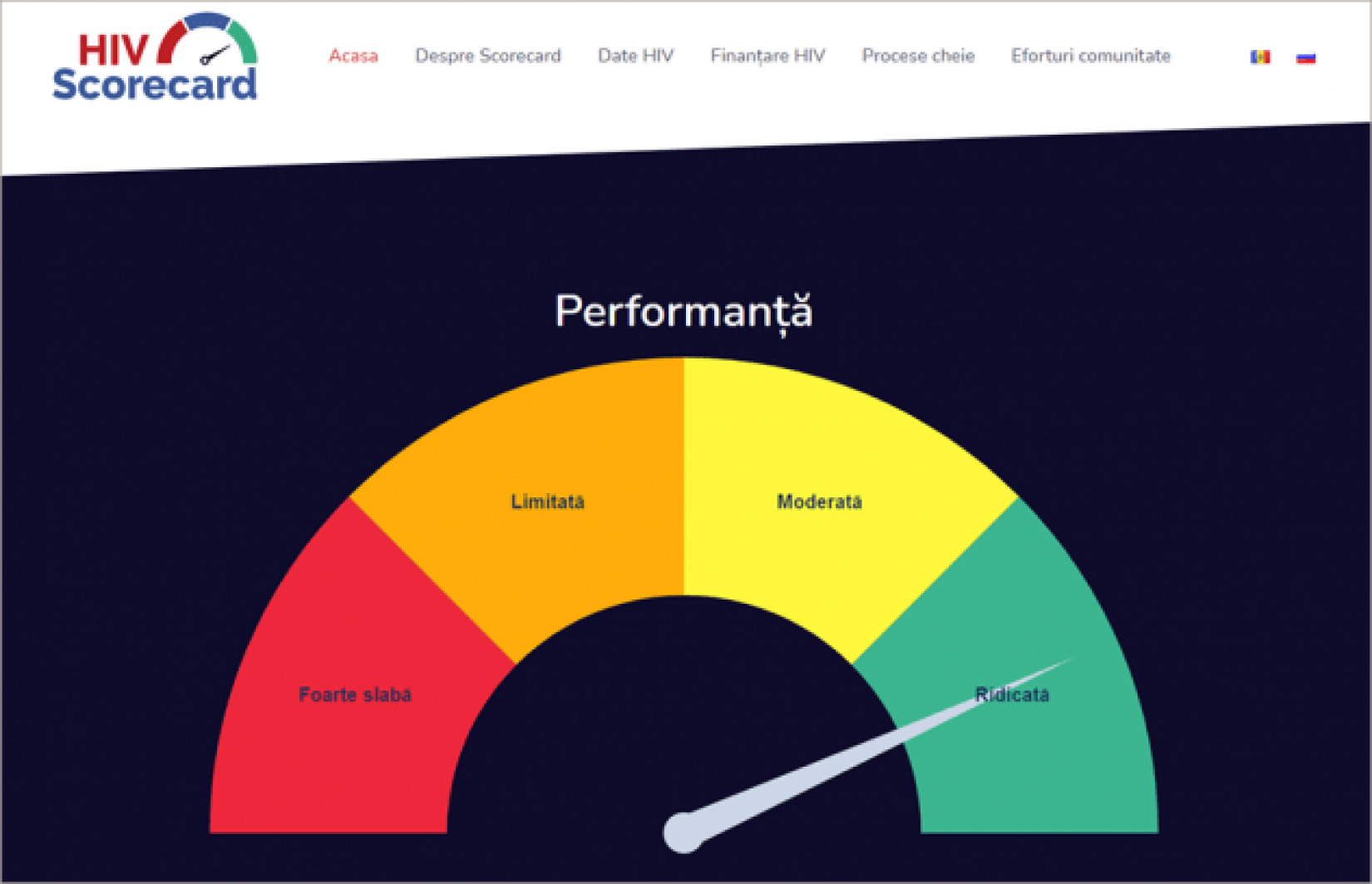Republic of Moldova is pioneering high-tech community-led monitoring
03 June 2021
The Republic of Moldova has launched an online platform, ScorecardHIV, to measure progress in the country's HIV response.

The new tool includes indicators and data on epidemiology, funding and procurement, programmes, human rights and community-led services. It will allow governmental institutions, health programme managers, HIV service organizations, communities and other stakeholders to track the progress and assess the effectiveness of HIV programmes in the country. A data filtering system allows the customization of indicators in accordance with the user’s interests and needs.
“The ministry will take the lead and provide political support to make sure further implementation of the tool is as effective, systematic and sustainable as possible,” said Denis Chernelya, the Secretary of State at the Ministry of Health, Labour and Social Protection. “It will be an extremely useful tool for internal monitoring as well as for understanding the main factors that contribute or impede the achievement of the set targets.”
The scorecard aims to ensure open, transparent and collective state and community-led monitoring of the HIV response. It will contribute to real-time data analysis and a rapid evidence-informed HIV response. The platform was developed by the UNAIDS Country Office for the Republic of Moldova together with the Positive Initiative nongovernmental organization and other local civil society organizations under the auspices of the Ministry of Health, Labour and Social Protection and the National Programme for the Prevention and Control of HIV/AIDS and Sexually Transmitted Infections.
The indicator map of the scorecard, which was discussed and agreed upon by all stakeholders, is sourced from the national HIV programme, ministries and government agencies and civil society organizations and is updated regularly, depending on the selected indicator—once a month, quarterly or half yearly. The platform allows data to be aggregated from different applications and sources and visualizes progress and failures in HIV programme implementation almost in real time. A task force consisting of several community organizations will update the scorecard and periodically review it.
The scorecard demonstrates how real-time data, technology and innovation can be of service for evidence-informed decisions and can strengthen cooperation between the government and communities.
“If we need to make decisions today, then we need the most recent data today. All our efforts were aimed at digitizing all possible processes, creating an infrastructure and finding IT solutions where everything can be accumulated, and then creating an analytics tool that will show us the main indicators,” said Ruslan Poverga, the Director of the Positive Initiative.
“We welcome such an important development in the Republic of Moldova,” said Alexander Goliusov, Director, a.i., of the UNAIDS Regional Support Team for Eastern Europe and Central Asia. “The scorecard was developed in line with the core principles of the new global AIDS strategy, including significant and measurable participation of civil society, a national response based on the available scientific evidence and technical knowledge, and respect for human rights and gender equality. I believe that the ability to track progress in real time, identify priority areas for rapid measures and political will and buy-in by the county’s national authorities will enable the Republic of Moldova to significantly accelerate progress towards the goal of ending AIDS by 2030.”
source: UNAIDS web page

Svetlana holds a master’s degree in Management of Public Health with “Nicolae Testemiteanu” State University of Medicine and Pharmacy, Moldova and Post-academic diploma in Communication and Public Relations with National School of Political and Administrative Studies, Romania. She holds a Bachelor of International Relations with State University of Moldova. She also holds a diploma of primary school teacher with the Pedagogical College “Vasile Lupu”, Orhei, Moldova.

